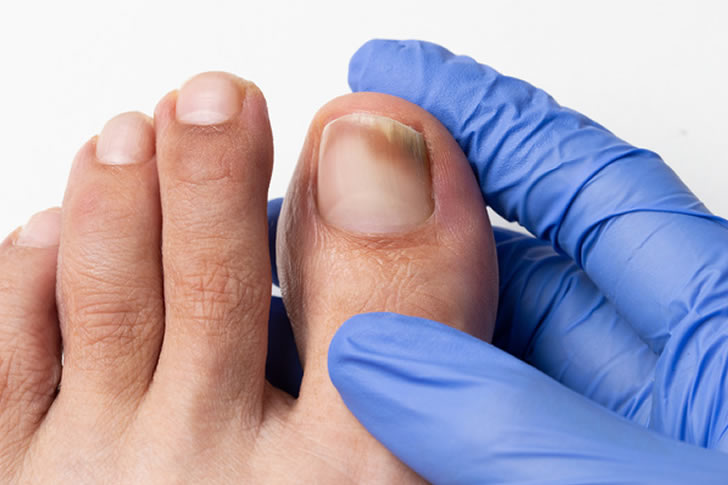Nail fungus can be stubborn and unsightly. Here's an effective guide to treatments and support options to reclaim healthy nails.

What Is Nail Fungus?
Nail fungus, medically known as onychomycosis, is a prevalent condition that manifests as yellow, brittle nails. This fungal infection thrives in warm, moist environments, making feet particularly susceptible.
Causes and Risk Factors
Common causes of nail fungus include:
- Poor foot hygiene: Inadequate cleaning and care can lead to fungal growth.
- Walking barefoot in moist communal areas: Places like swimming pools and locker rooms are breeding grounds for fungi.
- Weakened immune system: Individuals with compromised immunity are at higher risk.
- Diabetes and circulatory issues: These conditions can impair blood flow and healing, making infections more likely.
Treatments for Nail Fungus
Over-the-Counter Treatments
- Topical antifungals: Products containing clotrimazole or miconazole are applied directly to the affected nail. Regular use may yield improvements within weeks.
- Ciclopirox or amorolfine: These are also topical treatments that require daily application, with noticeable results typically appearing after several months.
Prescription Treatments
- Oral antifungals: Medications like terbinafine and itraconazole are effective but require a prescription. They work systemically and are usually taken for 6-12 weeks.
- Topical prescription treatments: Efinaconazole and tavaborole are applied directly to the nails and may show results after approximately 12 months of consistent use.
Home Remedies and Natural Treatments
- Tea tree oil: Known for its antifungal properties, it can be applied twice daily. Mixing it with a carrier oil can help prevent skin irritation.
- Vinegar soak: Soaking feet in a mixture of equal parts vinegar and water for 30 minutes daily can create an unfavorable environment for the fungus.
- Garlic or onion paste: Applying crushed garlic or onion paste on the nail for 30 minutes daily can help combat the infection due to their antifungal compounds.
Advanced Medical Treatments
- Laser therapy: This method uses light energy directed at the nail to kill the fungus. Multiple sessions may be required, but it often leads to significant improvement.
- Nail removal: In severe cases, the infected nail may need to be surgically removed to allow a healthy nail to grow back. Follow-up care is essential to prevent reinfection.
Support Options for Nail Fungus
Professional Support
- Dermatologists: Specialists in skin and nail health can provide expert advice and tailored treatments for persistent cases.
- Podiatrists: Foot care experts can help manage and treat conditions affecting the feet, including nail fungus.
Community and Online Support
- Support groups: Online forums and local groups offer platforms to share experiences, treatment successes, and emotional support.
- Primary care physician: Discuss concerns with your doctor, who can provide referrals to specialists and follow up on treatment progress.
Preventing Nail Fungus Recurrence
Maintain Proper Foot Hygiene
- Daily washing: Clean feet thoroughly with soap and water, ensuring they are completely dry, especially between the toes.
- Nail care: Keep nails trimmed and clean, using separate clippers for infected nails to avoid cross-contamination.
Choose the Right Footwear
- Breathable materials: Opt for shoes made of leather or mesh and wear moisture-wicking socks.
- Proper fit: Ensure shoes fit well to allow for ventilation and comfort, reducing the risk of fungal growth.
Practice Caution in Communal Areas
- Footwear in public spaces: Always wear shoes in communal showers, locker rooms, and around swimming pools to minimize exposure to fungi.
- Sanitize regularly: Clean and disinfect shoes and nail care tools frequently. Consider using UV shoe sanitizers to kill pathogens.
Conclusion
Effectively managing nail fungus involves a combination of treatments and support. Whether choosing over-the-counter solutions, prescription medications, or home remedies, consistency and persistence are crucial. Regular consultations with healthcare providers and participation in support groups can provide additional assistance. With dedicated care, healthy nails can be restored, and recurrence can be prevented.









